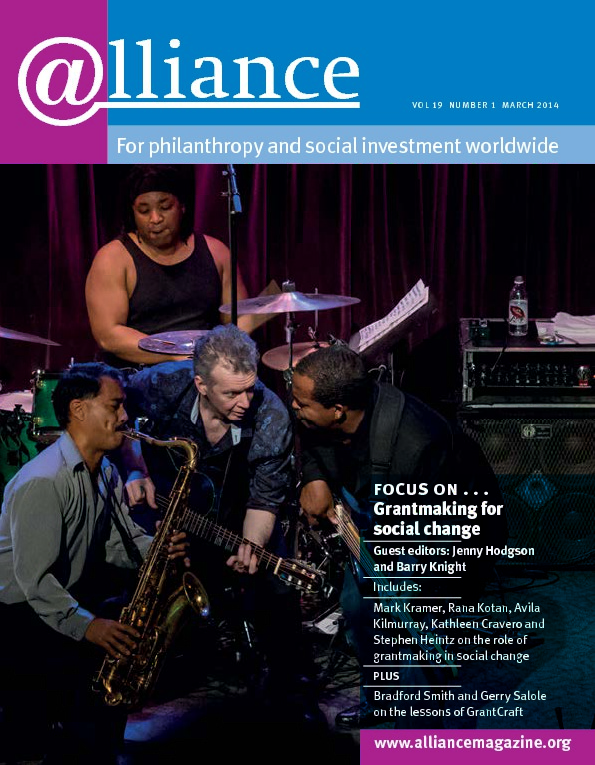Tade Aina and Bheki Moyo are both highly respected commentators on African philanthropy but even they might struggle to grapple with the diversity presented by a continent of over 1 billion people, 54 countries and very different histories. How would they deal with it? It was in a spirit of curiosity that I plunged into this 390-page book.
 The reader quickly begins to appreciate that this is a scholarly treatise on African philanthropy. Aina and Moyo have secured the participation of 19 eminently qualified practitioners to write chapters describing their findings from primary research on the subject and its implications or presenting analysis of trends and events in the specific countries from where they draw their experience. The final product unquestionably justifies the six-plus years that it took to produce the book.
The reader quickly begins to appreciate that this is a scholarly treatise on African philanthropy. Aina and Moyo have secured the participation of 19 eminently qualified practitioners to write chapters describing their findings from primary research on the subject and its implications or presenting analysis of trends and events in the specific countries from where they draw their experience. The final product unquestionably justifies the six-plus years that it took to produce the book.
Many of the 14 chapters (rightly, in my view) take time to define the concept of philanthropy and suggest the categories to which that definition applies, in a manner that comes across as setting down the parameters for future discussion and debate on this subject. How, for instance, does philanthropy (or whatever other label is used) differ from charity? What is the distinction between solidarity and compassion? What motivations are involved in ‘practising’ one or the other?
Descriptions about what existed – and in some cases still exists – in different African communities, and how this has been perceived over time, introduce valuable insights about the notions of giving and receiving and what this might imply in the societal setting. From the accounts in the different chapters, it is evident that there are no ready answers to the questions of how the operations of the various philanthropic entities can best be sustained and how to ensure that they are addressing social justice and/or traditional community development concerns.
I was struck, for instance, by the observation in one chapter that the role of tax incentives in stimulating philanthropy has been minimal. Yet most of us spend a fair amount of time agonizing over how to secure such incentives as part of what has often been described as an enabling environment for philanthropy.
Then there is the whole question of diaspora philanthropy and remittances and the fact that these have provided a lifeline to family units and entire countries on the continent. The question that emerges here is what innovations might work best to build on the positive aspects of the practice and how can its more undesirable aspects be minimized? It seems to me that there is room for a lot more innovation where interaction with the diaspora is concerned.
I would also have liked to see further treatment of the role of faith-based convictions as drivers of philanthropy (as opposed to charity) and ideas about how to strengthen institutions that emerge in this context while at the same time minimizing the possibility of abuse.
Clearly this book breaks new ground in numerous areas. It gallantly tries to present, albeit on a small scale, the kind of diversity that exists in Africa. But the fact is that Africa is a massive continent. For the student of African philanthropy, the book raises many more questions than it can begin to answer. One therefore has to be satisfied at this stage with the solid foundation that it has laid for further debate and analysis, for presenting more stories about past and current experiences and how to use these creatively to fashion the philanthropic action that Africa will need in the future.
From the perspective of the African Grantmakers Network, with which I am closely associated, I see this book as constituting a critical – or even a first – step in the effort to provide leadership for what will need to be a rapidly growing sector.
About the book
Published by: Amalion Publishing
Price: $39.95/£24.99/€30
ISBN: 9782359260205
To order: http://www.amalion.net
Ezra Mbogori is executive director of the Akiba Uhaki Foundation and vice chair of AGN. Email mbogori@akibauhaki.org






Comments (0)